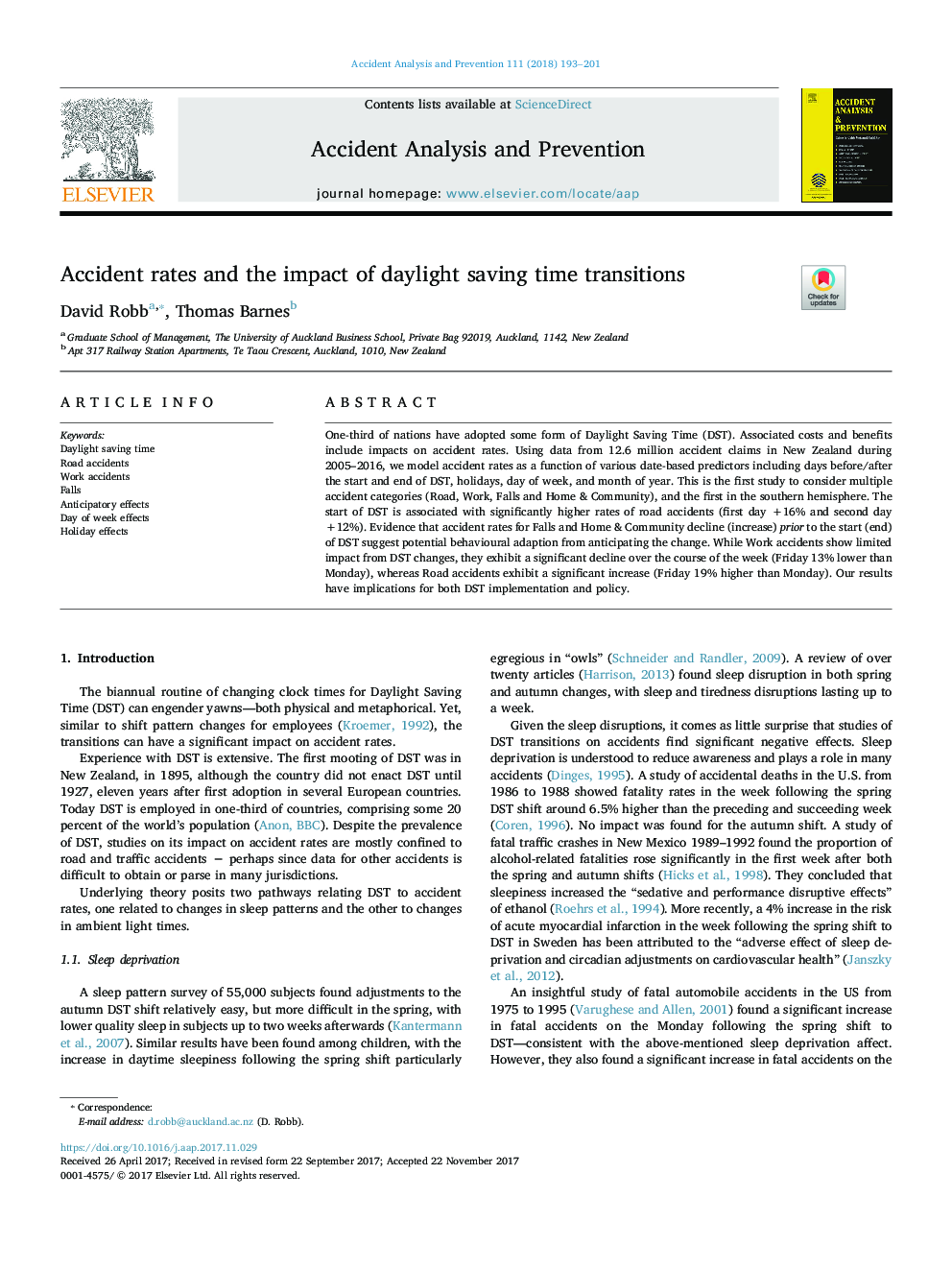| Article ID | Journal | Published Year | Pages | File Type |
|---|---|---|---|---|
| 6965263 | Accident Analysis & Prevention | 2018 | 9 Pages |
Abstract
One-third of nations have adopted some form of Daylight Saving Time (DST). Associated costs and benefits include impacts on accident rates. Using data from 12.6 million accident claims in New Zealand during 2005-2016, we model accident rates as a function of various date-based predictors including days before/after the start and end of DST, holidays, day of week, and month of year. This is the first study to consider multiple accident categories (Road, Work, Falls and Home & Community), and the first in the southern hemisphere. The start of DST is associated with significantly higher rates of road accidents (first day +16% and second day +12%). Evidence that accident rates for Falls and Home & Community decline (increase) prior to the start (end) of DST suggest potential behavioural adaption from anticipating the change. While Work accidents show limited impact from DST changes, they exhibit a significant decline over the course of the week (Friday 13% lower than Monday), whereas Road accidents exhibit a significant increase (Friday 19% higher than Monday). Our results have implications for both DST implementation and policy.
Related Topics
Physical Sciences and Engineering
Chemical Engineering
Chemical Health and Safety
Authors
David Robb, Thomas Barnes,
